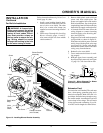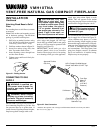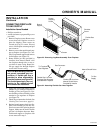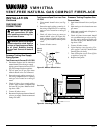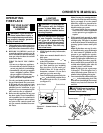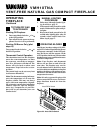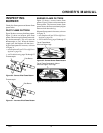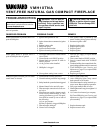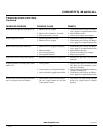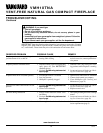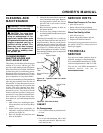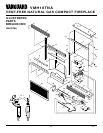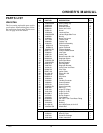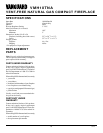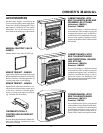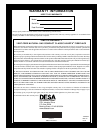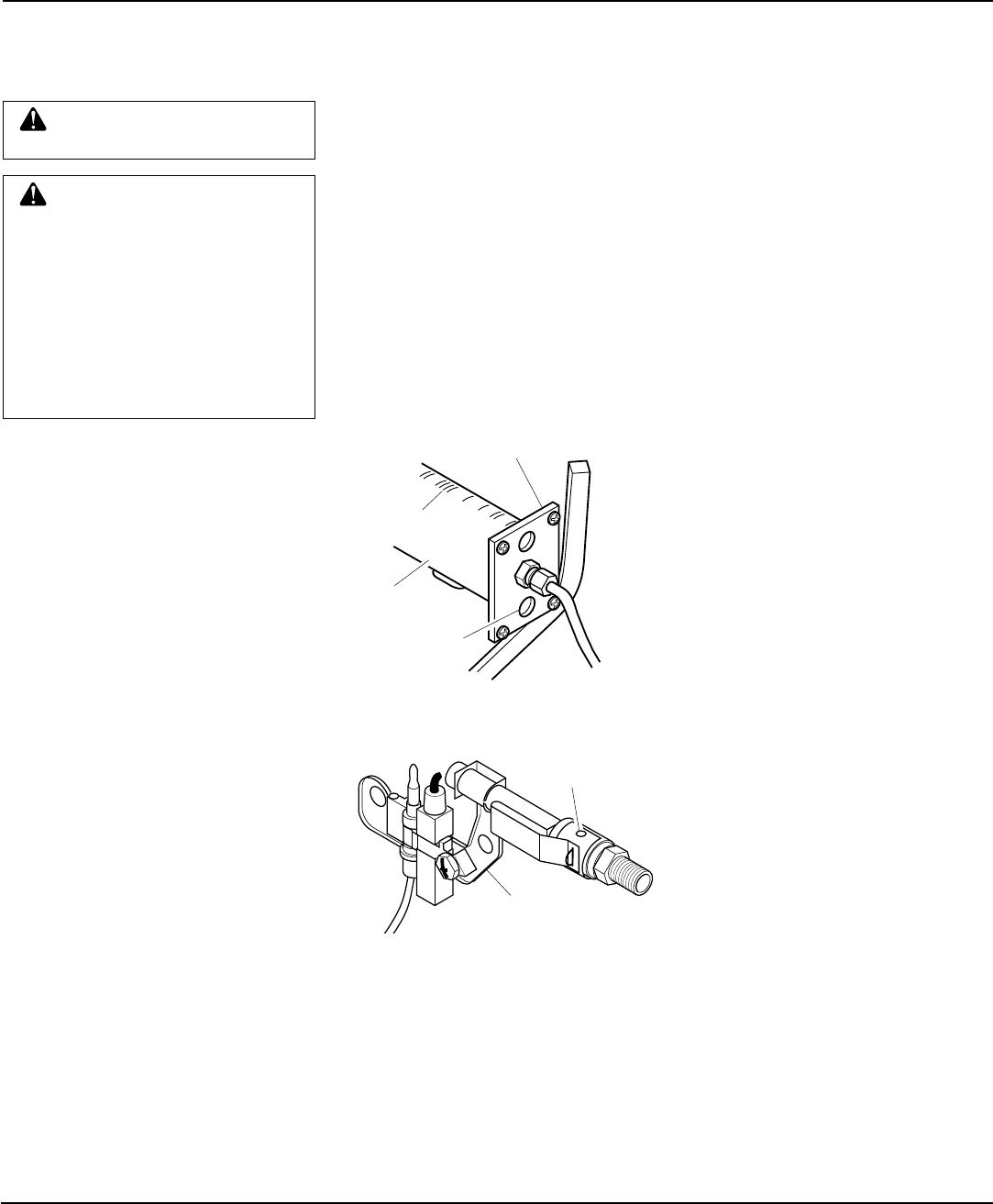
23
104408
OWNER’S MANUAL
CLEANING AND
MAINTENANCE
CABINET
Air Passageways
• Use a vacuum cleaner or pressurized air
to clean.
Exterior
• Use a soft cloth dampened with a mild
soap and water mixture. Wipe the cabi-
net to remove dust.
WARNING: Turn off fireplace
and let cool before cleaning.
CAUTION: You must keep
control areas, burner, and circu-
lating air passageways of fire-
place clean. Inspect these areas
of fireplace before each use. Have
fireplace inspected yearly by a
qualified service person. Fire-
place may need more frequent
cleaning due to excessive lint
from carpeting, bedding mate-
rial, pet hair, etc.
TECHNICAL
SERVICE
You may have further questions about in-
stallation, operation, or troubleshooting.
If so, contact DESA International’s Techni-
cal Service Department at 1-800-323-5190.
You can also visit DESA International’s
technical services web site at
www.desatech.com.
SERVICE HINTS
When Gas Pressure Is Too Low
• pilot will not stay lit
• burner will have delayed ignition
• fireplace will not produce specified heat
When Gas Quality Is Bad
• pilot will not stay lit
• burner will produce flames and soot
• fireplace will backfire when lit
You may feel your gas pressure is too low or
gas quality is bad. If so, contact your local
natural gas supplier.
CLEANING BURNER
INJECTOR HOLDER AND
PILOT AIR INLET HOLE
The primary air inlet holes allow the proper
amount of air to mix with the gas. This
provides a clean burning flame. Keep these
holes clear of dust, dirt, and lint. Clean these
air inlet holes prior to each heating season.
Blocked air holes will create soot. We rec-
ommend that you clean the unit every 2,500
hours of operation or every three months.
We also recommend that you keep the burner
tube and pilot assembly clean and free of
dust and dirt. To clean these parts we recom-
mend using compressed air no greater than
30 PSI. Your local computer store, hard-
ware store, or home center may carry com-
pressed air in a can. You can use a vacuum
cleaner in the blow position. If using com-
pressed air in a can, please follow the direc-
tions on the can. If you don't follow direc-
tions on the can, you could damage the pilot
assembly.
1. Shut off the unit, including the pilot.
Allow the unit to cool for at least thirty
minutes.
2. Inspect burner, pilot, and primary air
inlet holes on injector holder for dust
and dirt (see Figure 34).
3. Blow air through the ports/slots and
holes in the burner.
Figure 34 - Injector Holder On Outlet
Burner Tube
4. Check the injector holder located at the
end of the burner tube again. Remove
any large particles of dust, dirt, lint, or
pet hairs with a soft cloth or vacuum
cleaner nozzle.
5. Blow air into the primary air holes on
the injector holder.
6. In case any large clumps of dust have
now been pushed into the burner repeat
steps 3 and 4.
Clean the pilot assembly also. A yellow tip
on the pilot flame indicates dust and dirt in
the pilot assembly. There is a small pilot air
inlet hole about two inches from where the
pilot flame comes out of the pilot assembly
(see Figure 35). With the unit off, lightly
blow air through the air inlet hole. You may
blow through a drinking straw if compressed
air is not available.
Burner
Tube
Injector Holder
Primary Air Inlet
Holes
Figure 35 - Pilot Inlet Air Hole
Pilot Assembly
Pilot Air Inlet
Hole
Ports/Slots



